Prickly Pear: Handle With Care
Prickly pear cactus. A quiet, well-behaved plant, as house-plants go. These guys have been living meekly in their pots for more than twenty years—just getting taller and taller. They’re in an upstairs room, and I keep forgetting to water them, and every six months or so I go upstairs with a watering pot, fully expecting to find shriveled corpses. But prickly pear is a plant that’s hard to kill. This spring, I decided to take pity on the poor things and let them enjoy a pleasant summer soaking up the sun on the front porch. As I maneuvered one of the lanky plants down the stairs and out...
Read MoreWillow: Graceful Gold
An empty parking lot behind the Salvation Army in Glenville, NY. Blacktop edged with flattened plastic water bottles and tattered plastic bags. Not exactly a destination spot. Not the sort of place you expect to find beauty. Yet there it is. A willow tree–a work of art. Long graceful branches, slender leaves as yellow as lemons. The last trace of autumn gold before the snow comes to bury it. There are many species of willows–which one is this? Not sure. Not a weeping willow–those are easy to identify—can’t miss those long flowing tresses. This is one of the...
Read MoreWild Grape: Clinging Vine
There’s something shady about vines. Look at the names we give them—creepers, stranglers, parasites—they’re the bad guys of the plant world. To those of us raised in a strict Puritan work ethic, there’s something morally dubious about a plant that can’t stand on its own two feet, so to speak. Why can’t vines support themselves and not go draping themselves all over other plants? A “clinging vine” is the very definition of weakness. But Darwin considered vines to be among the most powerful and highly-evolved plants on the planet. Vines like grapes, bittersweet and poison ivy are extremely...
Read MoreDogwood: Lipstick Pink
Gray dogwood. One of many of the Cornus genus, a gaggle of rather dull little shrubs. It’s a nondescript bush most of the year, short, stubby, with gray twigs and floppy leaves. Nothing remarkable about it at all. Until fall, when it begins to flash the most garish shade of hot, sexy pink that you’ve ever seen on a make-up counter or nail polish bottle. The leaves turn a nice, decorous dark red, and the berries are just a bland grayish-beige–it’s the stems, of all unlikely things, that are so very pink. And like lipstick and nail polish, the bright color is meant to...
Read MoreGoldenrod Safari
A hungry predator crawls through a leafy jungle. Slow cautious movements make no sound. The well-camouflaged predator waits, motionless. Powerful forelegs stretch wide to grab its unwary prey. Beware the goldenrod jungle! A single goldenrod plant is a complex habitat, the leaves, stems, and flowers providing food and shelter for a bewildering variety of strange, hidden creatures. Each goldenrod plant has thousands of tiny blossoms crammed together, their nectar providing a vital late-summer source of nutrition for butterflies, moths and bees. Take a safari along the length of a goldenrod...
Read MoreGroundsel: A Little Poison
Groundsel. A tiny plant, growing close to the ground. A dandelion relative, a hardy little plant, able to cope with the forbidding habitat of the Price Chopper parking lot. Common Groundsel is a European plant, (Senecia vulgaris) like so many that sneaked over centuries ago. The word groundsel is very ancient—the first recorded use of the word is before the 12th century, and it was probably used well before that. It’s such a humble plant, you’d think it hardly worth mentioning. Wikipedia describes it as a plant that’s “easy not to notice.” The name comes from ground Old...
Read More
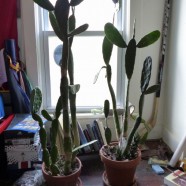
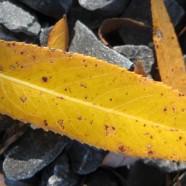
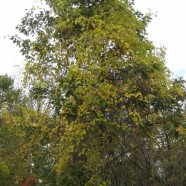
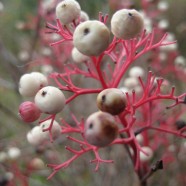
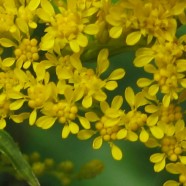
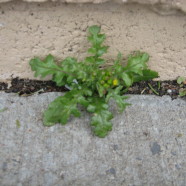




Recent Comments